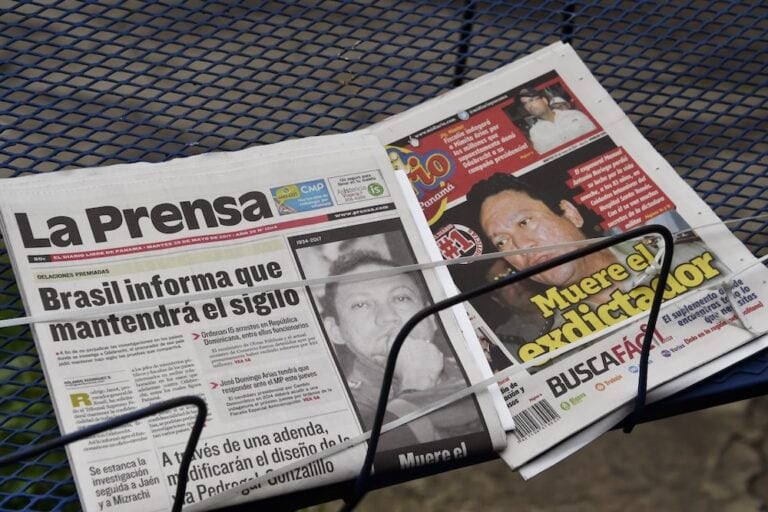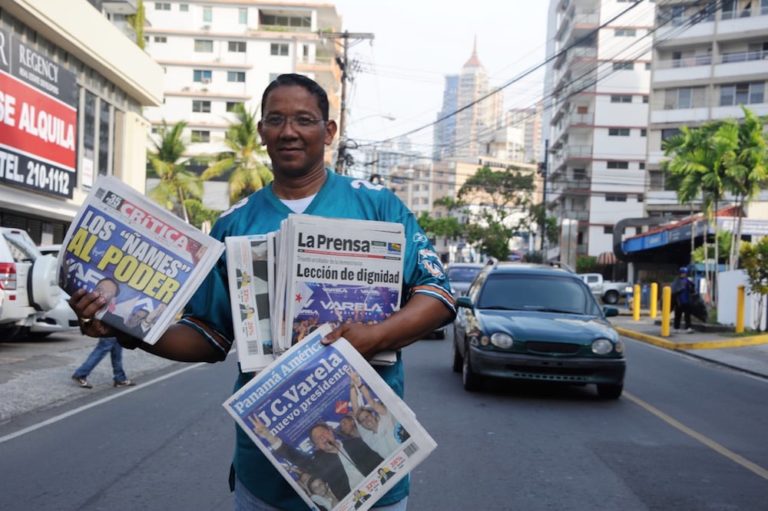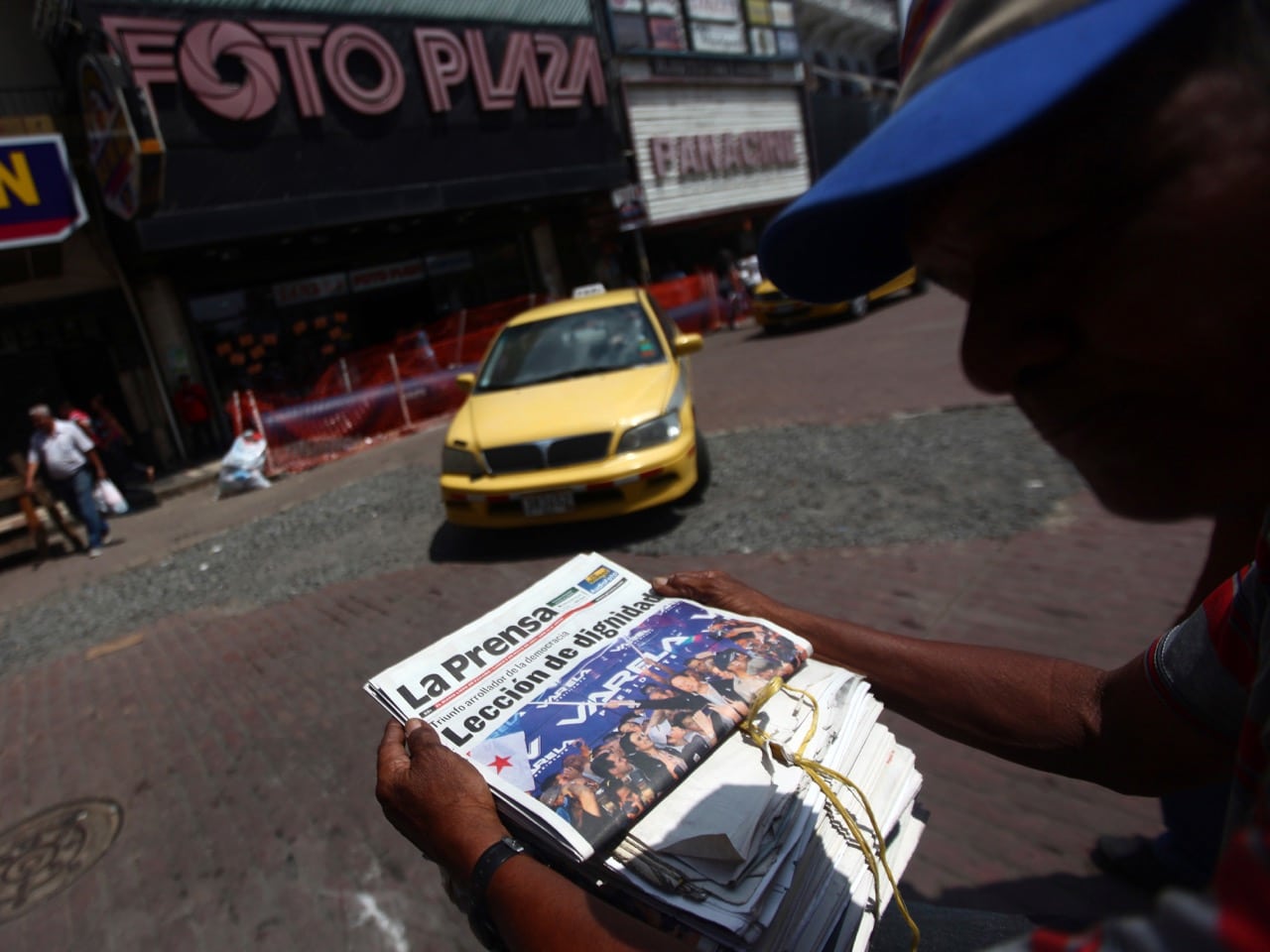(WPFC/IFEX) – The following is a 12 July 2004 WPFC letter to Jacobo Salas, speaker of the Legislative Assembly: His Excellency Jacobo Salas Speaker of the Legislative Assembly Panama City, Panama Your Excellency: On behalf of the World Press Freedom Committee (http://www.wpfc.org), an organization comprising 45 press freedom groups from throughout the world, I wish […]
(WPFC/IFEX) – The following is a 12 July 2004 WPFC letter to Jacobo Salas, speaker of the Legislative Assembly:
His Excellency Jacobo Salas
Speaker of the Legislative Assembly
Panama City, Panama
Your Excellency:
On behalf of the World Press Freedom Committee (http://www.wpfc.org), an organization comprising 45 press freedom groups from throughout the world, I wish to congratulate Panama’s National Assembly on its approval of the elimination of the insult law from the country’s Constitution by an overwhelming majority.
On July 7, the Assembly, during its first debate on the constitutional reform, by a 59-1 vote, approved the elimination of Article 33, Section 1, from the country’s Magna Carta, which consecrates legal protection from perceived insults for public officials. This article allows public officials to order the immediate arrest, without any previous trial, of any person should they feel insulted by that person.
Panama happens to be the only Western Hemisphere country that consecrates such a protection in its Constitution.
During the debate – the first of three the current Legislature is scheduled to complete – Member of the Assembly José Blandón justified the elimination by saying insult laws “have allowed abuse by some public officials, especially by our current attorney general,” Juan Antonio Sossa. Sossa is the main precursor of the almost 100 insult and criminal defamation indictments against journalists in Panama, a hemispheric record.
“It is imperative, when it is time for a Constitutional reform or to draft a new Constitution, that we update our Constitutional order according to modern freedom of expression standards by eliminating the authority to order the arrest of a person without due process,” Public Defender Juan Antonio Tejada, a stern press freedom advocate, had indicated in a letter to legislators.
Insult laws are holdovers from colonial or autocratic eras, whose origins date back to the Roman Empire, which created them in order to shield the emperor from criticism from the rest of the public.
Article 33, Section 1, also constitutes a challenge to the Inter-American justice system, which, through the Inter-American Commission on Human Rights and the Special Rapporteur for Freedom of Expression, has declared insult laws “contradictory” to Article 13 of the American Convention on Human Rights, of which Panama is a signatory. Ever since the commission issued its recommendation in 1994, only four Latin American countries have eliminated them: Argentina, Paraguay, Costa Rica and Peru.
This vote is part of a long reform process. It is the first of the three debates the Legislature needs to complete before its mandate expires on August 31. The day after, a new Legislature will be sworn in and will commence its own debates. That is why we encourage both the outgoing and incoming legislatures to continue their vigorous reforming work in order to achieve a complete elimination of the crime of insult from Panamanian legislation.
Likewise, we urge legislators to decriminalize defamation laws, an achievement that would put Panama on par with the rest of democratic nations that respect freedom of expression and of the press.
Yours truly,
James H. Ottaway, Jr.
Chairman
World Press Freedom Committee


